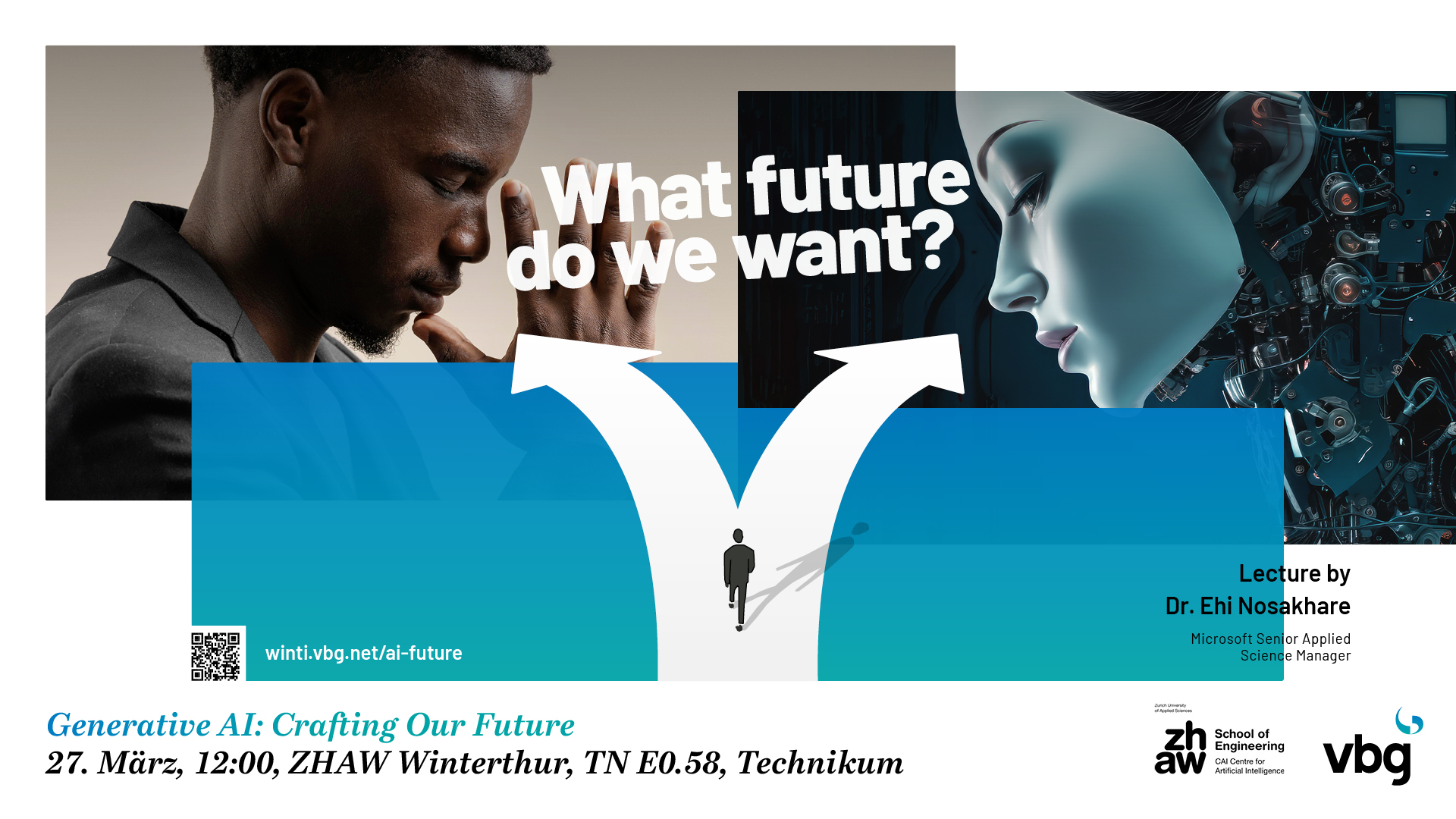On March 27th, the students and staff of ZHAW had the pleasure of attending the talk by Dr. Ehi Nosakhare titled “GenAI: Crafting Our Future”. This event was part of the Templeton Lectures, an annual series exploring the intersection of science, technology, and philosophy. Organized by the Templeton Foundation and VBG, the lecture was hosted by Dr. Ricardo Chavarriaga, head of the Responsible AI Innovation group at the Center for Artificial Intelligence (CAI).
Dr. Nosakhare, a Machine Learning Scientist and advocate for Women in STEM, currently serves as a Senior Applied Science Manager at Microsoft. She leads a team developing AI solutions across Microsoft’s products and services. Her passion lies in responsibly applying Artificial Intelligence to solve real-world problems and increasing the representation of women in AI.
During her lecture, Dr. Nosakhare provided an insightful overview of Generative AI (GenAI), focusing on its current state and future potential. She began by demystifying Large Language Models (LLMs) and explained how these models are trained on vast amounts of text data, enabling them to generate human-like text based on patterns they have learned. The process involves complex algorithms and neural networks that predict and generate human-like text, making LLMs powerful tools for various applications.
Dr. Nosakhare highlighted the darker side of Generative AI, discussing the prevalence of misinformation and the creation of deepfakes. She emphasized the potential misuse of these technologies, which leads to significant ethical and societal challenges. The importance of developing robust mechanisms to detect and mitigate misinformation was a key point in her talk.
Furthermore, Dr. Nosakhare introduced Microsoft’s Responsible AI Principles, outlining the company’s commitment to fairness, reliability, safety, privacy, security, inclusiveness, transparency, and accountability in AI development and deployment.
The lecture also covered foundation models and examples of diverse applications across industries, demonstrating how these models serve as a base for various AI tasks, from language translation to image recognition.
A compelling use case highlighted was the application of GenAI in Nigerian schools. Dr. Nosakhare showcased how Microsoft Copilot was applied to encourage school children to study English as a foreign language. These tools provide personalized learning experiences, offering real-time feedback on grammar, syntax, and vocabulary, thereby enhancing students’ language acquisition and engagement. This use case illustrates the transformative potential of AI in education, especially in under-resourced regions.
Following the lecture, a lively discussion ensued with the audience, delving into several pertinent topics:
- Management of AI Risks and Pro-Social Design. The conversation kicked off with questions about managing AI risks and the definitions of these risks.
- Copyright Issues and Legal Frameworks. The conversation addressed differences between U.S. and European legal bases concerning AI-generated content, ethical considerations regarding the use of copyrighted information, and the broader, passionate debate within the global tech community.
- Accountability of Big Tech. The final segment of the discussion focused on the accountability of big tech companies and the role of government and society in AI oversight. Dr. Nosakhare and the audience debated how much oversight is necessary and the responsibilities of various stakeholders in ensuring ethical AI practices. A key insight was the importance of collaborative efforts between tech companies, governments, and the need for increased engagement of civil society.
The event provided a comprehensive understanding of Generative AI’s transformative potential and sparked critical conversations about the ethical and societal implications of its integration into various sectors.
